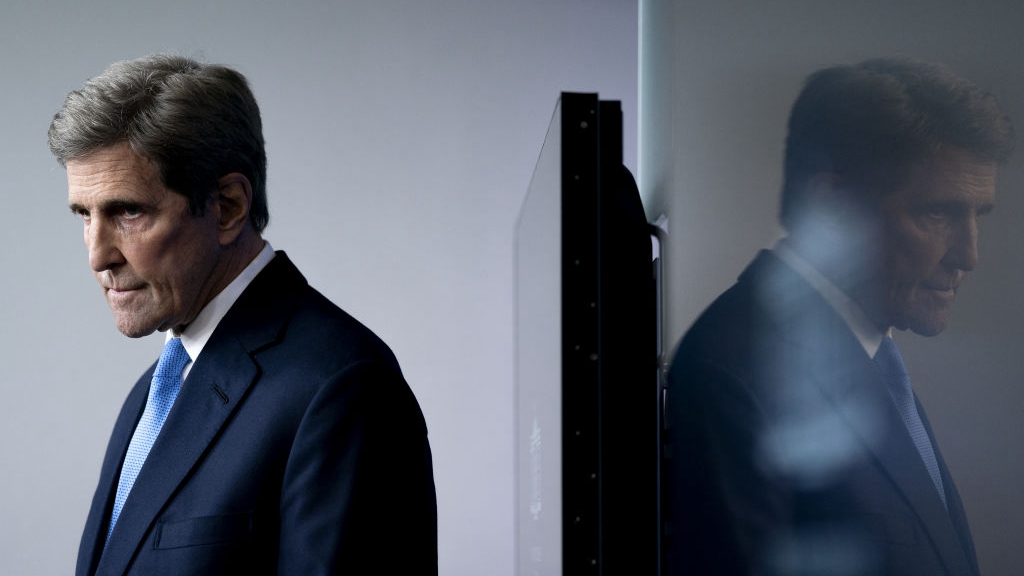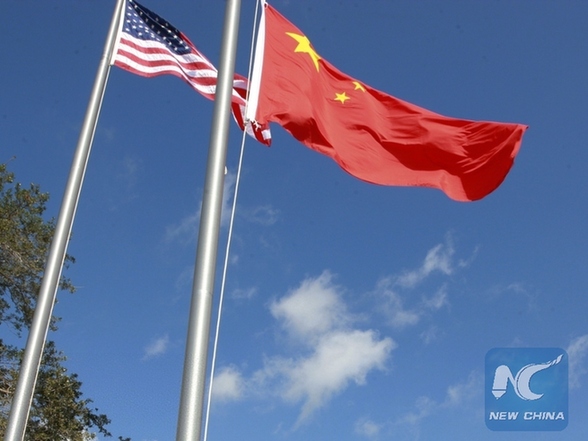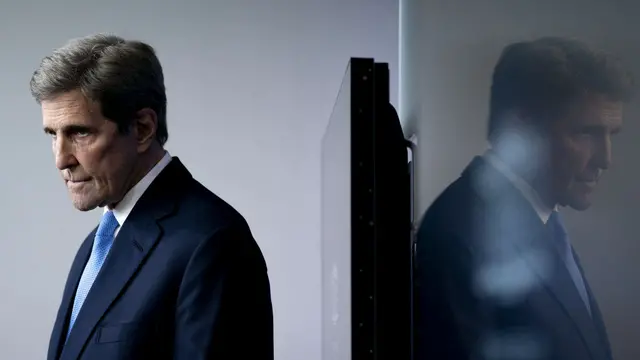
John Kerry, U.S. special presidential envoy for climate, listens during a news conference at the White House in Washington, D.C., U.S., January 27, 2021. /Getty
Editor's note: Freddie Reidy is a freelance writer based in London. He studied history and history of art at the University of Kent, Canterbury, specializing in Russian history and international politics. The article reflects the author's opinions and not necessarily the views of CGTN.
Tensions between the U.S. and China were compounded in March by frosty talks held in Alaska which highlighted significant diplomatic challenges. However, the arrival of U.S. climate envoy John Kerry in Shanghai marked the highest level diplomatic visit to the Middle Kingdom of the U.S. President Joe Biden's term in office, amidst cautious optimism.
Such cautious optimism though, has been rewarded with a joint declaration on the April 18th. "The United States and China are committed to cooperating with each other and with other countries to tackle the climate crisis, which must be addressed with the seriousness and urgency that it demands."
The declaration marks an important milestone in the world's two largest economies relations, but also serves as the first major reengagement the U.S. has made since walking away from the commitments of the Paris Climate Accord during the Trump presidency.
The joint commitment is also of particular significance owing to the need to mutually agree to reductions in carbon emissions without nation gaining an economic advantage of the other's commitments. As such, both nations agreed to talks on "concrete actions in the 2020s to reduce emissions aimed at keeping the Paris Agreement aligned temperature limit within reach."
Such commitments are important as a post-COVID-19 economic recovery is an opportunity to build in environmental considerations to create sustainable growth. Tangibly, for the U.S., this is likely to necessitate commitments to reduced oil and natural gas and for China, a curb on the use of coal.
To this end, both sides indicated that low carbon initiatives should be favored for state backing and aid over high-carbon projects.
Indeed, Li Shou, a senior advisor to Greenpeace, characterized the summit as "positive" and pointing out that the joint declaration "sends a very unequivocal (sic) message that on this particular issue, China and the U.S. will cooperate. Before the meeting in Shanghai, this was not a message that we could assume."
While the aforementioned 'cautious optimism' may be true of the essential nature of coordinated action from China and the U.S., the optimism is equally attributable to the hope that action on the climate emergency could be a vehicle for a breaking the present diplomatic impasse.

The Chinese and American flags at the Chinese Civic Center in Houston, the United States, September 25, 2011. /Xinhua
While former president Donald Trump always developed policies around flagship "big deals," the necessity for "an all or nothing" outcome, usually brought about by "maximum pressure," usually led to inertia and abandonment. This was notably the case with the U.S. policy toward the DPRK.
What is perhaps a better rubric, is the Merkel-inspired compartmentalization and pursuit of incremental change. Germany and the EU are experiencing diplomatic tensions with Russia over Alexei Navalny for instance, but this does not preclude a continued joint commitment on the Nord Stream Two pipeline.
For Sino-U.S. relations then, coordination and collaboration on the environment could form the foundation and cornerstone of a broader rapprochement. It is also an incontrovertible fact that without the China and the U.S. leading major structural change, there is little hope of meeting the global goals due to be enhanced at COP26 in Glasgow in November.
Presently, China's NDC rating is "highly insufficient" with the U.S.' even worse at "critically insufficient," however, Beijing's commitment to carbon neutrality by 2060 was a sea change for the cause and one which will put requisite pressure on the U.S. to follow.
The joint declaration was also significant beyond the boarders of China and the U.S. The technological, logistical, and financial assistance that both nations can offer developing nations will be vital in meeting global targets.
Joe Biden's Earth Day summit on climate change is being held this week, with China expressing its enthusiasm.
COVID-19 has demonstrated the need for coordinated action in addressing common threats, but also the perils of inaction. In this, perhaps most important threat the world now faces, the China-U.S. joint declaration from the world's two leading economies is indeed cause of optimism. Both in the hope of nurturing a fledgling bipartisanship and in successfully confronting climate change.
(If you want to contribute and have specific expertise, please contact us at [email protected].)
 简体中文
简体中文



